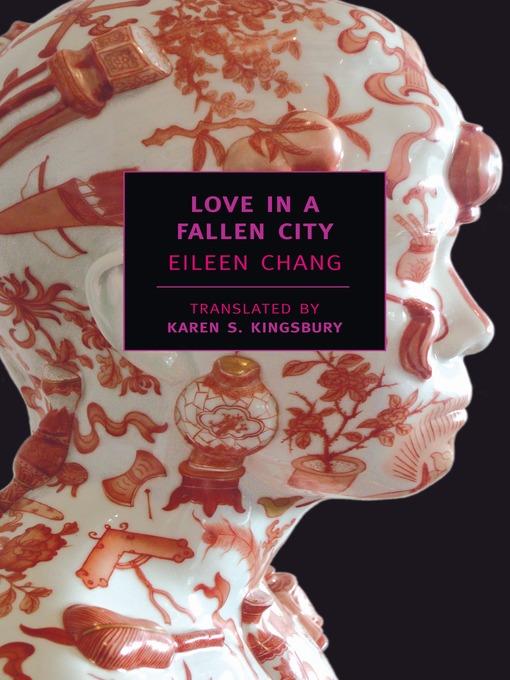
Love in a Fallen City
کتاب های مرتبط
- اطلاعات
- نقد و بررسی
- دیدگاه کاربران
نقد و بررسی

Starred review from August 14, 2006
Chang died in 1995 in Los Angeles, having emigrated to the U.S. in 1955 at 35. These six stories, most available in English for the first time, were published to acclaim in China and Hong Kong in the '40s; they explore, bewitchingly, the myriad ways love overcomes (or doesn't) the intense social constraints of time and place. In the compact "Sealed Off," Shanghai briefly shuts down in defense against a blockade, and strangers on a tram allow their inner yearnings to surface, with consequences at once momentous and static. In the layered title story, a couple taunt each other with false estrangements as they fall in love, then are forced to confront one another directly through wartime privations. The startling novella "The Golden Cangue," told with upstairs-downstairs shifts in perspective, fugues around a wife, resentful of her disabled husband and reviled by his family, who seeks reassurance in opium. In these eloquent tragedies, Chang plunges readers in medias res
. She expertly burdens her characters with failed dreams and stifled possibilities, leads them to push aside the heavy curtains of family and convention, and then shows them a yawning emptiness. Their different responses are brilliantly underplayed and fascinating.

November 15, 2006
This posthumous collection contains virtually all new translations of Chang's six novellas, which are well known in both China and Taiwan. Set in China and featuring characters with ties to Shanghai, Chang's birthplace, the stories are further tied together by relationship issues and the question of (true) love at a time when women were expected to marry well and discussion of class, divorce, and illicit affairs was taboo. In the opening piece, "Aloeswood Incense," Madame Liang surreptitiously watches over her niece Weilong while trying to find a proper suitor for herself as well. Weilong soon falls for an underachieving playboy of mixed race who is not exactly the type Madame Liang had envisioned for her neice. "Red Rose, White Rose" tells the story of Zhenbao, a man from a poor family who has beaten the odds to get ahead, and his simultaneous pursuit of a pure wife ("white rose") and a passionate mistress ("red rose"). While the situations in the stories may come across as foreign or even barbaric to today's readers, Chang's writing realistically captures the human heart and confronts the trappings of cultural expectations. Libraries serving readers who enjoy Chinese authors such as Ha Jin will want to consider adding.Shirley N. Quan, Orange Cty. P.L., Santa Ana, CA
Copyright 2006 Library Journal, LLC Used with permission.

October 15, 2006
Chang, a popular writer in China during World War II, immigrated to the United States in the 1950s, where she continued to write until her death in 1995. This posthumous collection contains six vibrant stories that depict life in post-WWII China. In "Aloeswood Incense," Weilong, a girl from Shanghai, calls on her aunt, a not-quite-respectable cosmopolitan widow, for financial assistance so that she can continue her college education. Her aunt agrees on the condition that Weilong stay with her, and then proceeds to manipulate the young girl's love life. "Jasmine Tea" revolves around a young man burning with resentment over the ill treatment he has received for most of his life from his father and stepmother. He turns his ire on the daughter of the man his mother loved, with disastrous consequences. In "Sealed Off," a stifled accountant sits next to a young English teacher on the tram, and the two end up connecting, albeit briefly. Evocative and vivid, Chang's stories bristle with equal parts passion and resentment.(Reprinted with permission of Booklist, copyright 2006, American Library Association.)

























دیدگاه کاربران